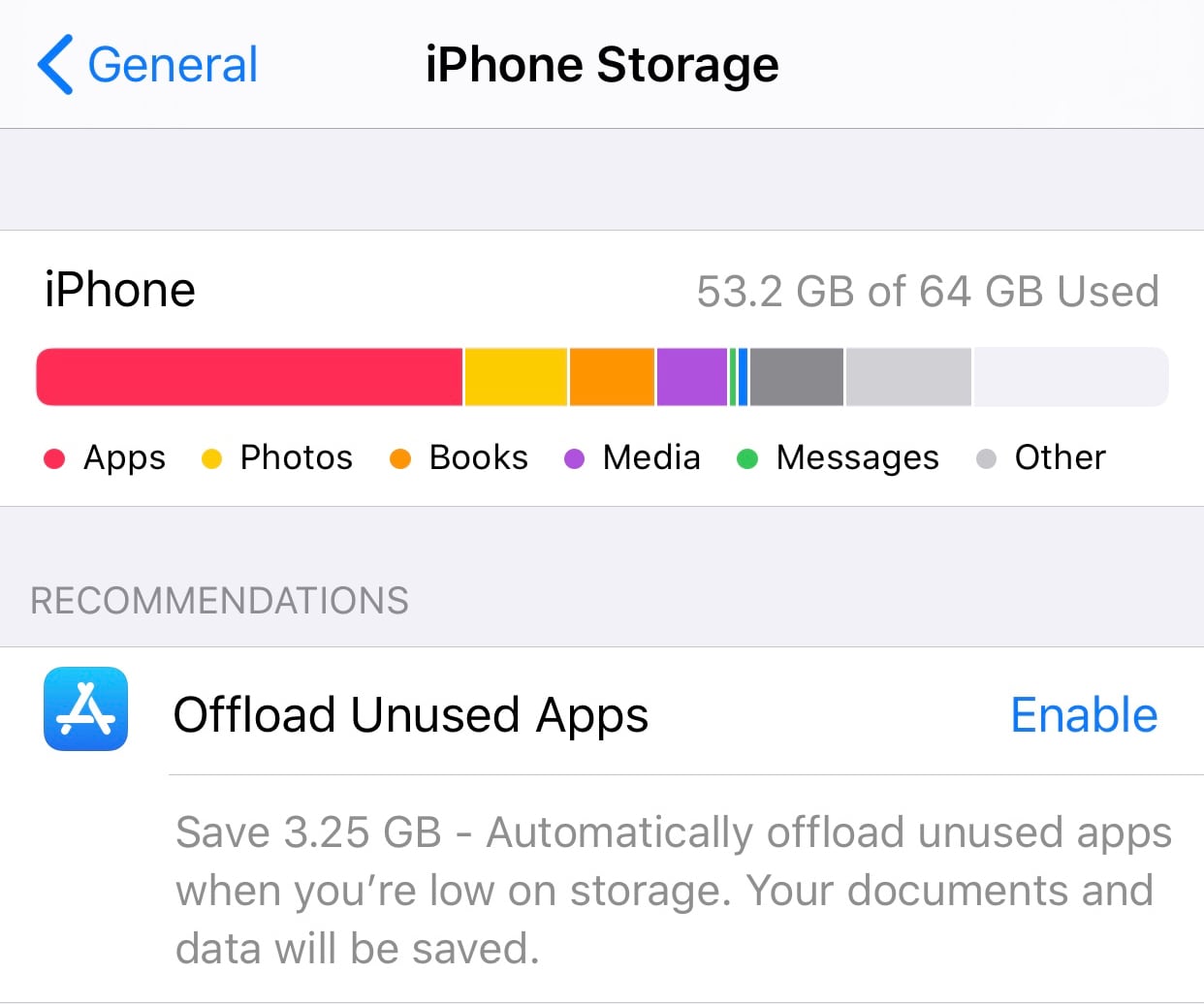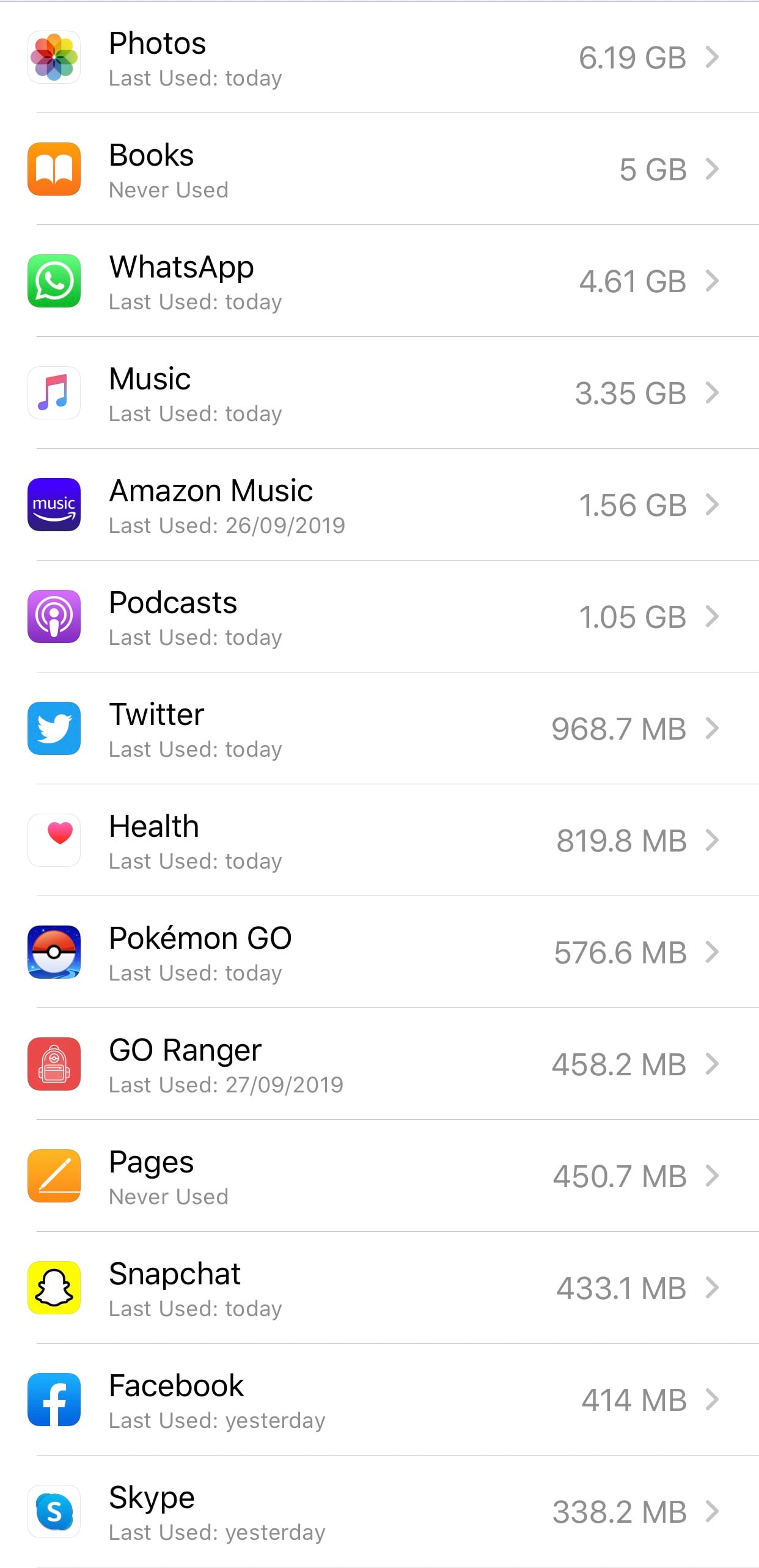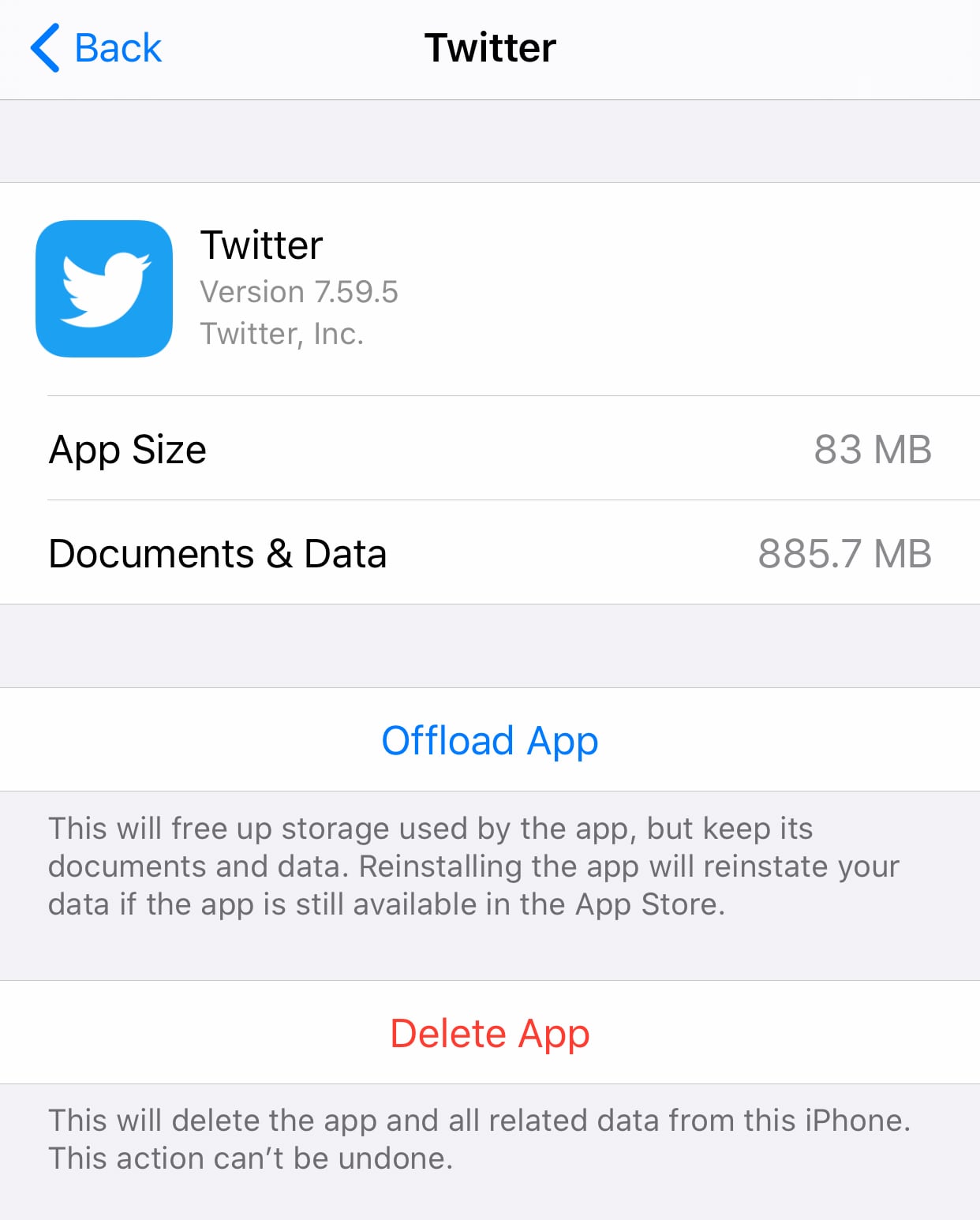![]() Week 101 was posted by Charanjit Chana on 2019-09-30.
Week 101 was posted by Charanjit Chana on 2019-09-30.
Each iPhones now comes in 3 of 4 size configurations, depending on the model you buy. They all start at 64GB should really be more than enough for most, but you can go all the way to 512GB if you're worried you'll ever run out of space. But beyond photo storage and the inability to delete apps just-in-case, why would anyone need that much storage on their phone?
For all the gains in battery life, performance, machine learning and convenience, there's still one aspect of iOS that Apple has failed to address from the very beginning. And it plagues more apps than you may realise. Head to Settings > General > iPhone Storage and see how apps store way more data than they need to on your device. Most don't even give you a way to remove most of it. Here's the breakdown of how the storage is used on my 64GB iPhone 8 Plus.

Almost half is taken up by apps but just look at the list of apps but just look at how much of that storage is down to the data stored by those apps. It's absurd to think any app needs to double in size after being used, but that's a reality of mobile app development. And it's not armatures either, the big players are all in the spotlight here:

Why on earth has Facebook stored 180MB+ of data on my phone? I barely use the app and really I should delete is, but it's not alone. Twitter has stored 885MB+ of data on my phone:
For these apps, the only way to get that space back is to delete the app and then reinstall. But that's really not how it should work.
So how should it all work?
In an ideal world, Apple would have the option for apps to determine what data is actually a cache and from this screen you'd be able to purge it:

So far today, I've deleted YouTube and reinstalled and gained 1GB of space back. There are tools that can take care of this for you, but you have to trust it to only delete what it should be. If I could put one thing on a wish list for iOS 14, they should introduce a purge cache option for all apps and it should regularly clear the cache itself for anything older than 30 days.
Update
Listening to The Vergecast this morning with Nilay Patel and John Gruber discussing the iPhone 11 reviews and Nilay mentioned that he's an avid user of AirDrop.
AirDrop is a feature I've used just a handful of times to share contact info, but in this discussion it was all around how photos are shared and in a way in blew my mind as I sat there in traffic.
Sharing photos with acquaintances in the moment, sure, I get that. But sharing photos with someone close to you (his wife in this scenario) seems absurd to me. Why wouldn't you use an iCloud Photo Stream to do this? There are pros and cons for each which may help to answer that question but it feels like the features are not being used for their designed purposes. Here's a short list of what the pros are for each, which just happens to not be a feature of the other:
| AirDrop | Photo Streams |
|---|---|
|
Instant Photos are searchable Feed into Year/Month/Day view |
Many-to-many sharing Comment Like Backup |
Perhaps this is one of the reasons iPhone users regularly complain about space and more people are using AirDrop over Photo Streams? If tech reviewers are using the wrong features it's not going to be a surprise that the regular users would be too.
Oh, and don't forget the most important rule when it comes to organising and editing photos: delete, delete, delete!
Tags: apple, ios, iphone, storage, apple, ios, iphone, storage